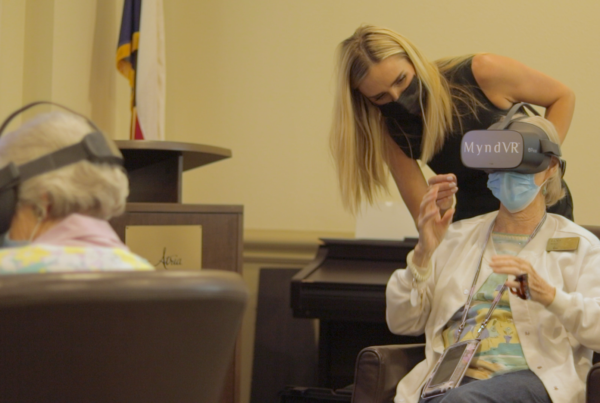The number of restrictive abortion laws has surged this year, and not just in Texas, where lawmakers passed Senate Bill 8. Across the country, more state-level abortion restrictions have passed in 2021 than any year on record since Roe v. Wade became the law of the land.
Yet in the midst of these legal restrictions and debates, new trends in abortion care are emerging.
Dr. Abigail Aiken is an associate professor at the LBJ School of Public Affairs and director of Project SANA, a research group that studies self-managed abortion. She says one such trend is the rise in demand for online telemedicine services like Aid Access, which provide safe and effective abortion pills to people seeking to terminate a pregnancy through a medication abortion.
“People will look for ways to self manage their own abortions, i.e. look for them outside the formal health care setting, and abortion pills are one way of doing that,” Aiken said.
In a recent perspective for the Washington Post, Aiken writes that state-level restrictions may lead to a transformation of at-home, medication abortions.
Aiken joined the Texas Standard to discuss her piece. Listen to the interview above or read the transcript below to learn more.
This transcript has been edited lightly for clarity:
Texas Standard: Are we talking about what is commonly called the abortion pill? I think we’re talking about two pills, if that’s the case.
Dr. Abigail Aiken: Yes, that’s right. The abortion pill is what we used to have a medication abortion, and that’s the pill with a Mifepristone, followed by a set of pills called Misoprostol. And those are taken to have a medication abortion. And they experience bleeding and cramping as the pregnancy ends.
You write that we may see a transformation of at home medication abortions. How so?
The laws that legislators have put in place in Texas and in some of the surrounding states, have really made in clinic abortion – the way we tend to think of people going to an abortion clinic to seek care – out of reach for a lot of people. They have increased the costs of those abortions and there’s very little coverage through Medicaid or private health insurance to help pay for the cost. They have forced clinics to close. And of course, now, with Senate Bill 8, that’s only the newest in a long trajectory of making in-clinic abortion harder to access. As that happens, people will look for ways to self-manage their own abortions, i.e. look for them outside the formal health care setting. And abortion pills are one way of doing that.
Typically people would access this type of abortion care through a Planned Parenthood or some other abortion provider. Are you suggesting that under SB 8, because of the restrictions in place now under the under the law that’s currently in effect, people may try to find abortion pills on the black market, perhaps in other countries? Is that what your concern is?
Well, I guess it’s not so much a concern as it is an observation. Some people are going to be able to get out of state because abortion funds and out-of-state clinics are working overtime, trying to help people to access care out of state. And then there are other people who are going to look for ways to self-manage. And one of the most prominent ways, one that’s accessible to a lot of people, is actually online telemedicine. There’s a service called Aid Access. You can find them easily by Googling, and they are an online telehealth service. I would not call them black market. I would call them a humanitarian organization trying to provide safe and effective abortion care to people who can’t get to a clinic in Texas.
You’ve done extensive research on the prevalence and safety of the abortion pill? Can you state categorically, is this a safe methodology?
Well, there are many different kinds of self-managed abortion. There are different ways to do it. But if we’re talking specifically about that online telemedicine model that we see through the Aid Access service, then yes, we have looked at this in different countries around the world where people have been self-managing using online telemedicine for decades at this point, and a prominent example is Ireland. Before the referendum in 2018, abortion was pretty much outlawed in Ireland, but people self-managed because of that restrictive law. We looked at the outcomes of one thousand self-managed medication abortions, and we found that 95% of people were able to end their pregnancy using the pills alone. That’s about the same as in the clinical setting and that rates of adverse outcomes, like needing extra care in a hospital for an emergency, were very low. So yes, we can say that this model of self-management is indeed safe and effective.
Do you have any evidence that in fact, this is already happening, that more Texans are using medication abortions and turning to self-management?
Yes, we are actually looking at the exact numbers right now since Senate Bill 8 went into effect, but we have good reason to believe that we are going to see an increase. Because last time abortion was banned for a period of time in Texas was in March 2020, when COVID emerged as an emergency. And Governor Abbott decided to declare it to nonessential medical procedure and closed abortion clinics in Texas for a period of four weeks. When that happened, requests to the Aid Access service doubled. So I think that gives us a window on what we expect to happen this time.















